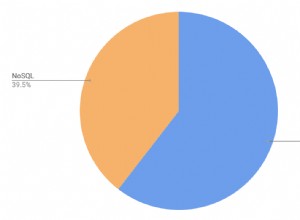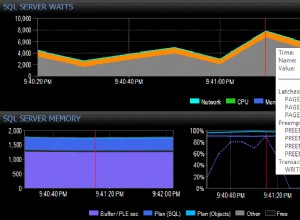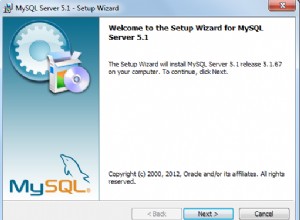Questo ti mostrerà gli SPID più longevi su un server SQL 2000 o SQL 2005:
select
P.spid
, right(convert(varchar,
dateadd(ms, datediff(ms, P.last_batch, getdate()), '1900-01-01'),
121), 12) as 'batch_duration'
, P.program_name
, P.hostname
, P.loginame
from master.dbo.sysprocesses P
where P.spid > 50
and P.status not in ('background', 'sleeping')
and P.cmd not in ('AWAITING COMMAND'
,'MIRROR HANDLER'
,'LAZY WRITER'
,'CHECKPOINT SLEEP'
,'RA MANAGER')
order by batch_duration desc
Se hai bisogno di vedere l'SQL in esecuzione per un dato spid dai risultati, usa qualcosa del genere:
declare
@spid int
, @stmt_start int
, @stmt_end int
, @sql_handle binary(20)
set @spid = XXX -- Fill this in
select top 1
@sql_handle = sql_handle
, @stmt_start = case stmt_start when 0 then 0 else stmt_start / 2 end
, @stmt_end = case stmt_end when -1 then -1 else stmt_end / 2 end
from sys.sysprocesses
where spid = @spid
order by ecid
SELECT
SUBSTRING( text,
COALESCE(NULLIF(@stmt_start, 0), 1),
CASE @stmt_end
WHEN -1
THEN DATALENGTH(text)
ELSE
(@stmt_end - @stmt_start)
END
)
FROM ::fn_get_sql(@sql_handle)




